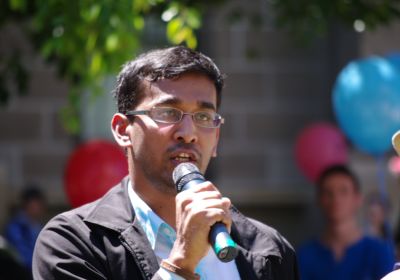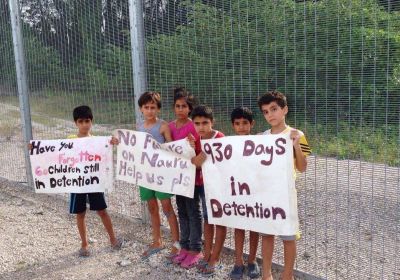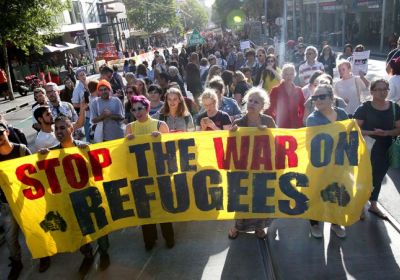-
-
-
-
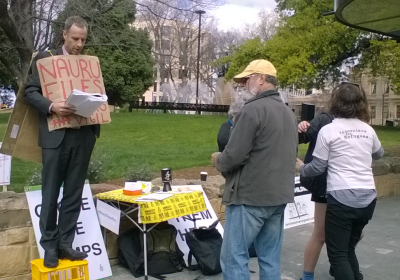
Every day, people’s human rights are violated. In detention centres like those on Nauru and Manus Island, such violations are not just allowed but enforced by the Australian government. However, last month people stood together for nine hours to tell the Australian government that they would not accept it any longer.
The vigil was held in the Hobart CBD from 10am to 7pm. People took turns reading to onlookers from the Nauru case files that were recently leaked by the Guardian. Others held placards and banners with messages of solidarity for the people in detention centres at Manus and Nauru.
-
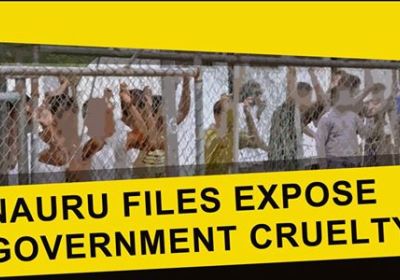
A boy is grabbed around the throat, his head is smashed against the ground twice and then a chair is thrown onto him by a security guard. Many people witnessed and reported the incident.
-
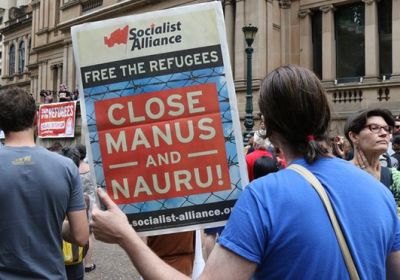 A poll of more than 1400 people commissioned by The Australia Institute and published the week before the election found that 63% oppose the bipartisan policy that refugees who arrive in Australia by boat are sent to off-shore detention centres and will never be settled in Australia.
A poll of more than 1400 people commissioned by The Australia Institute and published the week before the election found that 63% oppose the bipartisan policy that refugees who arrive in Australia by boat are sent to off-shore detention centres and will never be settled in Australia. -
 In May 1939 the St Louis, carried 935 Jews seeking asylum from Nazi Germany. Many countries refused to let them in, including the US, which used coast guard ships to stop the St Louis from docking. Eventually they were forced to return to Europe, and most of the passengers died in the Holocaust they were fleeing.
In May 1939 the St Louis, carried 935 Jews seeking asylum from Nazi Germany. Many countries refused to let them in, including the US, which used coast guard ships to stop the St Louis from docking. Eventually they were forced to return to Europe, and most of the passengers died in the Holocaust they were fleeing.
-
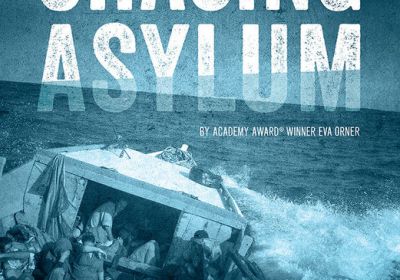 Chasing Asylum Directed by Eva Orner Selected cinemas Chasing Asylum is a new documentary that shows the Nauru and Manus Island detention centres for the “Hell on Earth” and “human dumping grounds” they are.
Chasing Asylum Directed by Eva Orner Selected cinemas Chasing Asylum is a new documentary that shows the Nauru and Manus Island detention centres for the “Hell on Earth” and “human dumping grounds” they are. -
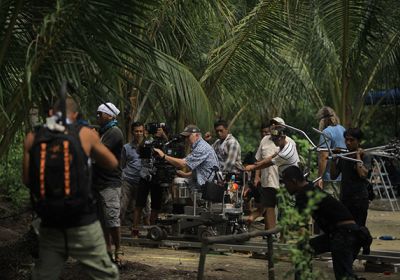 That the Australian government can find $6 million to fund a film aimed at convincing asylum seekers to not come to Australia and yet cut more than $50 million from Screen Australia speaks volumes about its priorities.
That the Australian government can find $6 million to fund a film aimed at convincing asylum seekers to not come to Australia and yet cut more than $50 million from Screen Australia speaks volumes about its priorities. -
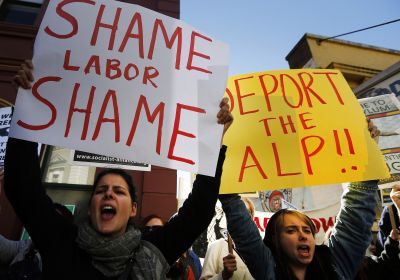 In breaking news, it seems that the Labor Party left cannot agree to oppose a “turn back the boats” policy. So there seems to be no chance that the upcoming national Labor Party Conference in Melbourne on July 24 to 26 will consider opposing the Coalition policy of turning boats back that are attempting to reach this country, so the passengers can claim asylum, a human right.
In breaking news, it seems that the Labor Party left cannot agree to oppose a “turn back the boats” policy. So there seems to be no chance that the upcoming national Labor Party Conference in Melbourne on July 24 to 26 will consider opposing the Coalition policy of turning boats back that are attempting to reach this country, so the passengers can claim asylum, a human right. -
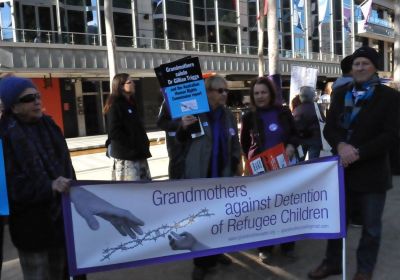 Asylum-seekers and their supporters have been dealt a cruel blow this week thanks to the shameful, bipartisan support for offshore detention within the Australian parliament. A High Court challenge to the legality of Australia’s offshore detention of asylum seekers has been undermined by an eleventh hour bill rushed through the House of Representatives and Senate, unamended and with ALP support, on June 24 and 25.
Asylum-seekers and their supporters have been dealt a cruel blow this week thanks to the shameful, bipartisan support for offshore detention within the Australian parliament. A High Court challenge to the legality of Australia’s offshore detention of asylum seekers has been undermined by an eleventh hour bill rushed through the House of Representatives and Senate, unamended and with ALP support, on June 24 and 25. -

“We will not be treated like slaves,” a refugee forced to live on Nauru said during a series of public protests held by refugees on the island. Hundreds of refugees living in the community, alongside asylum seekers still held in detention camps, have been holding a campaign of non-cooperation and protest since February 25. Children have boycotted class, refugees with jobs have begun a stay-away strike and many are refusing to talk to their case mangers.
Offshore/Regional processing and detention
Offshore/Regional processing and detention
